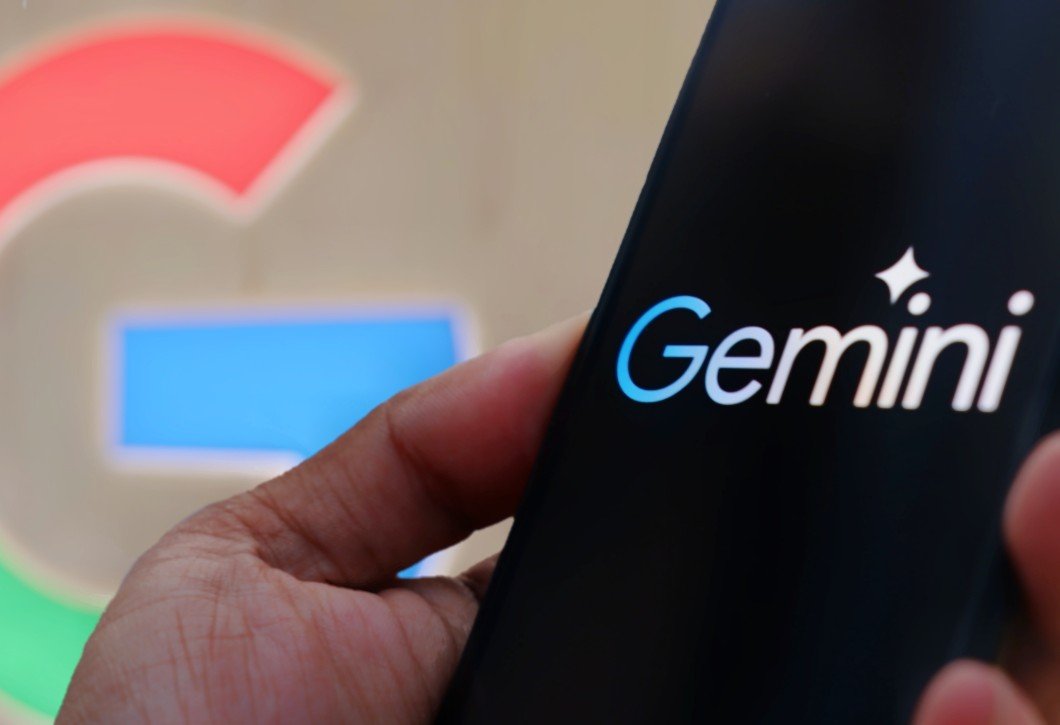Google’s big AI comeback is here, and Wall Street is clearly loving it. The debut of Gemini 3, which is suddenly outperforming rivals on multiple fronts, has shifted the mood around the company in a huge way.
Google spent years trying to shake off the reputation of being behind in AI after OpenAI stunned everyone back in 2022. But with Gemini 3, the company is showing it can still hit hard—and honestly, the reaction across Silicon Valley says plenty.
Google Finally Scores a Win
The early buzz around Gemini 3 has been loud, almost louder than even Google execs expected. And the most important part: this time, the hype matches the numbers.
Gemini 3 tops OpenAI and Anthropic models in more than a dozen categories.
It performs especially well in tough reasoning tests.
Researchers say it’s doing shockingly well across scientific topics.
That mix makes people pay attention.
Some folks inside OpenAI are apparently nervous about it. Sam Altman even wrote internally that Google’s new momentum could cause “temporary economic headwinds” for his own shop. One line in particular—“I expect the vibes out there to be rough for a bit”—spread like wildfire in tech Slacks.

Google is also flexing in hardware, a place Nvidia has owned for years. The company is reportedly in talks to supply its tensor-processing chips to Meta. That news alone knocked Nvidia’s stock down fast, though Nvidia tried to shrug it off in a post saying it’s still a generation ahead.
Google’s own stock? Going the other direction.
Billionaires Shuffle as Shares Jump
Alphabet shares climbing has turned into a whole subplot because it pushed the Google founders way up the wealth rankings.
Larry Page jumped to second place with an estimated $264.4 billion.
Sergey Brin reached third briefly this week at $245.3 billion.
This is the kind of leaderboard movement you only see when a company hits a sudden gust of momentum. Investors seem convinced that Google is back in the race.
Why Gemini 3 Surprised So Many
Gemini 3’s success surprised even longtime AI analysts because Google had stumbled repeatedly. Just last year, the company struggled with mixed model launches and criticism that it moved too slowly.
Now? People are comparing this to a sports team that went through a slump and suddenly found its rhythm again. It’s almost like someone flipped a switch.
The model’s biggest jump came in scientific topics such as chemistry and physics. One scientist joked online that Gemini 3 “knows more about orbital symmetry than half my students,” which probably thrilled the Google DeepMind crowd.
Even in math benchmarks—areas where models usually hit walls—Gemini 3 came out more consistent.
Some folks are asking whether this is an early sign that AI research is shifting from the foundational stage to a more engineering-heavy phase, where tuning and refinement matter more. Hard to say. But it’s clear Google tightened up something.
AI Chips Become the New Battlefield
Google’s TPU Push Stirs Up Chip Market
There’s one twist in this story that really shook the market: Google offering its TPUs to Meta.
For years, cloud giants built their own chips mainly for internal use. Selling them to rivals? Unheard of.
But here we are.
The Information’s report about the talks spooked Nvidia investors enough to cut shares by around 6% at one point. Nvidia quickly tried to cool things down with a message praising Google’s achievements. But you could practically hear the tension.
Now the question floating around: Could Google carve out a real slice of the AI-chip economy?
A short answer—maybe. And maybe not.
The longer answer needs more data.
Investors are watching this part closely.
Here’s a quick snapshot of what’s driving attention:
| Company | AI Chip Strategy | Market Impact |
|---|---|---|
| Selling TPUs to outside partners | Spooked Nvidia, boosted Alphabet | |
| Nvidia | Dominant supplier | Hit short-term volatility |
| Meta | Seeking alternatives to expensive GPUs | Could shift demand balance |
That’s a pretty unusual setup for a sector that looked almost locked down by Nvidia two years ago.
Rivalry Intensifies Across AI Startups
xAI Pushes Its Own Path
xAI—the company Musk spun up in a hurry—claims it’ll be profitable by 2028.
That figure came from an investor call reviewed by Forbes.
And apparently it has $10 billion already in the bank.
Two sentences later, Shulkin (a former finance head at xAI) said the startup is trying to raise another $15 billion.
This is happening while OpenAI burns through staggering amounts of cash for new infrastructure. OpenAI expects to break even in 2030, but that’s after planning to pour more than a trillion dollars into data centers.
Honestly, just the scale of that line made a few analysts rub their eyes.
One odd thing here: even with its quiet reputation, xAI is pacing ahead of expectations. Investors originally believed it would take much longer to reach sustainability.
Actually, the contrast between the companies feels like watching two runners who trained in completely different ways. One is sprinting with early money and a lighter strategy. The other is building a giant stadium before stepping onto the track.
A short thought: these timelines matter because they feed talent flows, product cycles, and who lands enterprise deals first.
A Strange Thanksgiving Side Story
AI Recipe Slop Becomes a Whole New Worry
This week brought another curveball: warnings about AI-generated Thanksgiving recipes.
People online started sharing examples of cooking instructions produced by chatbots that were… well, pretty chaotic. Some told users to bake turkeys at unsafe temperatures. Others mashed ingredients that should never meet.
It sounds silly, but food-safety experts were loud about it because flawed instructions can seriously harm people.
One chef joked that AI-written stuffing “felt like it was assembled by someone who’s never seen a kitchen but read about one through a foggy mirror.”
It got laughs, sure, but the concern is real.
Big tech firms haven’t commented much, though some researchers suggested adding clearer guardrails for recipe-related prompts. Whether that happens anytime soon is unclear.
A tiny reminder dropped online by several food bloggers summed it up neatly:
• Always double-check cooking temps from official sources during the holidays.
It’s a weird footnote in a week full of heavy AI news, but it caught traction because home cooks genuinely rely on these tools now.
Looking Ahead as Momentum Shifts
Tech Leaders React Quietly—But They’re Watching
Inside Silicon Valley, the vibe feels strangely charged.
Something about Gemini 3’s strong debut shook expectations.
Some execs even called it a “reset moment.”
Maybe it is, maybe it isn’t.
Markets tend to overreact, but they also tend to sniff out genuine change.
And this week, they smelled something.
The bigger tech shifts—chips, new funding rounds, billionaires shuffling spots—signal a sector bracing for yet another round of escalation. You know how it goes: one breakthrough leads to ten more announcements, rumors, leaks, memos and reactions.
What’s clear is that Google is no longer the quiet one in the corner.
It’s louder, more confident, and finally showing that it still has claws.








